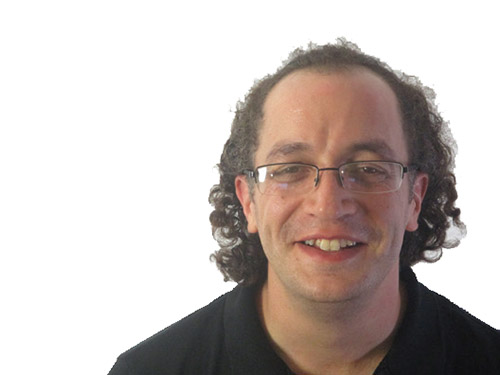
Eli Mandel was once a kollel student who thought piling on credit card debt was the simple way to make whatever purchase he wanted. He learned the hard way that trouble ensues when you can’t pay the bill. He taught himself a better way to manage money. Now he’s coaching others with a four-month guided self-help path to financial stability.
“I define financial stability as a state where your personal life and goals are in sync with your finances,” said Mandel, “when you tell your money what to do and it does it. Most of us manage our money by feel or intuition. Maybe that works out, but often people find themselves out of control with money. Things aren’t adding up.”
Mandel became an accountant and developed professional credentials. He and his wife increased their financial literacy by reading the works of experts like Dave Ramsey and Suze Orman.
He went to Israel where he trained with Mesila, a non-profit that provides free financial coaching, and then came back and opened Mesila’s Cleveland branch. At Mesila, he honed his skills not only in budgeting, but in teaching people how to make the attitude and behavioral adjustments necessary to transform their financial lives. After Mesila, he returned to accounting, providing accounting services to nonprofits, with an emphasis on better budgeting, while continuing to offer financial counseling for individuals and families on the side. He now does financial coaching exclusively.
Mandel’s four-month program puts clients in the driver’s seat—and he helps them steer. The first meeting is always in person, or if necessary, through Skype or video conferencing.
“The program is guided self-help,” said Mandel. “Whatever comes up—bankruptcy, credit card debt, tax situations—a million things come up. The client—or couple if married—develops awareness of the full scope of their financial situation and everything that surrounds it: the financial terms and numbers, and how they got there. There’s lots of homework. In the second stage, we address all of their underlying attitudes, assumptions and habits about money and what is causing their problems. Then I help them analyze what to do, how to make changes. I guide them to implement these changes and suggestions, and manage them in reality.”
Changes sometimes seem like common sense but it takes coaching to make them happen. Mandel spoke about a couple with four children he worked with who had a household income of $50,000 a year. Every year during the fall Yom Tov season, when the husband wasn’t earning much, they put $1,000-$2,000 on credit cards, assuming they would slowly pay off the balance—only they didn’t. After working with Mandel, the next year was different. They had saved enough going into the season for a month’s rent after Sukkot in addition to the money needed for Yom Tov. “They sailed through the whole season on money they had put away, rather than borrowing,” said Mandel, sounding like a proud parent. After two years, the family was debt free.
More money isn’t the answer to better financial stability. With most people, spending rises to meet income and can still spiral out of control. Mandel worked with a dual-income family who had a household income of close to $200,000 a year. When their oldest child was ready for high school, they began panicking as they realized the combination of mortgage, expenses and tuition was heading them into negative numbers. Working with Mandel, they gained solid knowledge of what they had and a clear-eyed, realistic view of where they were going. Armed with this analysis, the couple decided to make a big change. They sold their house and bought one in a different community, and chose different schools.
Mandel is based in Philadelphia but is beginning to meet clients one day a week in New Jersey. For more information or to schedule an appointment, contact Eli Mandel Consulting at emandelconsulting@gmail.com or 216-314-7258.










